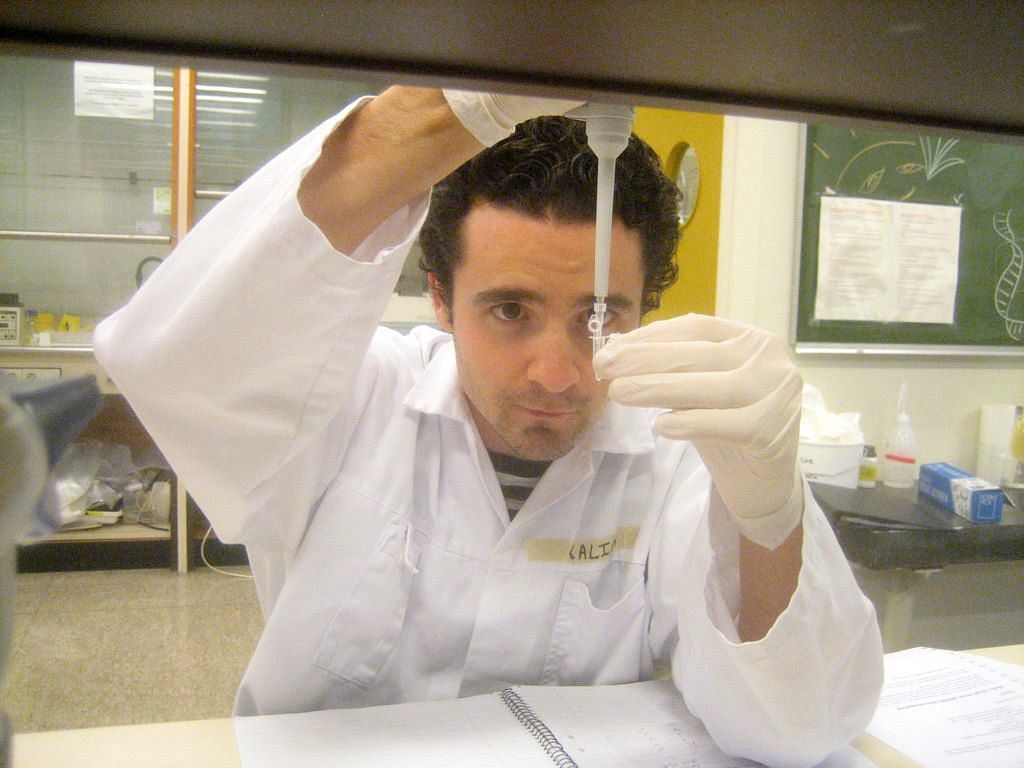TU researcher Dr. Calin Plesa won an NWO Rubicon grant and went to California. At UCLA, he now learns the art and science of synthesizing genes by the thousands.
In response to our request to explain why he went to California and how that related to the work he had done at the TU Delft, Dr. Calin Plesa (31) said the following:
“I spent my PhD studying DNA using nanopores, which are tiny holes in a membrane, just large enough for the DNA to pass through. These can be used to probe various properties of the DNA, and in some implementations even determine their sequence.
Along the way, I became more interested in synthetic biology, which aims to engineer new biological systems to achieve new functions. Much like a child who first learns to read and then to write, I thought that having spent my PhD learning to ‘read’ DNA, my postdoc was a perfect opportunity to learn to ‘write’ it as well. Learning to synthesize DNA would also allow me to develop my interests in synthetic biology.
The current approaches to synthesizing DNA, and assembling genes are too expensive to allow us to probe some fascinating questions, which would require thousands of genes to be synthesized. When I learned that the lab of Professor Kosuri at UCLA was working on new low-cost methods to build thousands of genes simultaneously, I thought this was a perfect fit.
I visited the lab in February last year and was excited by the research being carried out. I also enjoyed visiting Los Angeles and thought it would be a nice place to live for a few years. I spent the next several months researching various possible applications for the DNA synthesis technique before deciding on engineering new human signalling pathways.
Briefly, the proteins involved in these complex pathways interact together in ways that science doesn’t understand entirely. The goal of my proposed research would be to use new DNA synthesis techniques to assemble thousands of different variants of the proteins involved in these pathways and determine their interactions. By seeing which particular variants interact I could establish a set of rules which would allow the design of proteins with specific interactions. If successful, this could have many possible future applications since defective signalling pathways occur in many diseases.”
Calin Plesa was born in Bucharest, Romania. He holds MSc degrees in Nanoscience and Nanotechnology from both TUDelft and Chalmers University of Technology. He earned his PhD cum laude at the Department of Bionanoscience at the Kavli Institute for Nanoscience (Faculty of Applied Sciences) in January 2015. His thesis was titled ‘Solid-state nanopores for probing DNA and protein’. He regards the friendly climate and the surfing locations that California offers as “an added bonus”.



Comments are closed.